When the World Was Black:
The Untold History of the Worlds First Civilizations
Part Two
 When the World Was Black: The Untold History of the Worlds First Civilizations, Part Two: Ancient Civilizations. Copyright 2013 by Supreme Design, LLC. All rights reserved. No part of this book may be reproduced in any form or by any electronic or mechanical means including information storage and retrieval systems without permission in writing from the publisher, except by a reviewer, who may quote brief passages in a review.
When the World Was Black: The Untold History of the Worlds First Civilizations, Part Two: Ancient Civilizations. Copyright 2013 by Supreme Design, LLC. All rights reserved. No part of this book may be reproduced in any form or by any electronic or mechanical means including information storage and retrieval systems without permission in writing from the publisher, except by a reviewer, who may quote brief passages in a review.
Published by Supreme Design Publishing. PO Box 10887, Atlanta, GA 30310.
Although the author and publisher have made every effort to ensure the accuracy and completeness of information contained in this book, we assume no responsibility for errors, inaccuracies, omissions, or any inconsistency herein. Any perceived slights of people, places, or organizations are not intended to be malicious in nature.
 Supreme Design Publishing books are printed on long-lasting acid-free paper. When it is available, we choose paper that has been manufactured by environmentally responsible practices. These may include using trees grown in sustainable forests, incorporating recycled paper, minimizing chlorine in bleaching, or recycling the energy produced at the paper mill.
Supreme Design Publishing books are printed on long-lasting acid-free paper. When it is available, we choose paper that has been manufactured by environmentally responsible practices. These may include using trees grown in sustainable forests, incorporating recycled paper, minimizing chlorine in bleaching, or recycling the energy produced at the paper mill.
Supreme Design Publishing is also a member of the Tree Neutral initiative, which works to offset paper consumption through tree planting.

ISBN: 978-1-935721-05-5
LCCN: _

Wholesale Discounts. Special discounts (up to 55% off of retail) are available on quantity purchases. For details, visit our website, contact us by mail at the address above, Attention: Wholesale Orders, or email us at orders@supremedesignonline.com
Individual Sales. Supreme Design publications are available for retail purchase, or can be requested, at most bookstores. They can also be ordered directly from the Supreme Design Publishing website, at www.SupremeDesignOnline.com
Visit us on the web at www.TheScienceofSelf.com
Table of Contents
Introduction
Basic Instructions
I am apt to suspect the Negroes to be naturally inferior to the white. There never was a civilized nation of any other complexion than white, nor even any individual eminent either in action or speculation. No ingenious manufactures amongst them, no arts, no sciences. Philosopher David Hume, 1768
Why are ancient Black civilizations important? What do they have to do with us nowadays? Could this information serve as anything more than a source of inspiration? Or are these stories mere reminders of the greatness that once was?
There are actually several reasons why we need a full and accurate story of the Black role in the worlds ancient civilizations:
- First, public opinion has not changed much since Enlightenment philosopher David Hume said the horrible words above over two hundred years ago. Its not simply that people dont know exactly how much Black people gave the world. Instead, many people think Black people gave the world absolutely nothing. This is especially the case when we talk about the worlds ancient civilizations.
- Second, this history allows us to see how modern civilization came to be. As the ancient world, beginning with the Neolithic Age (around 10,000 years ago), is the foundation for all the civilizations that followed, we can only fully understand the present (and see the future) when we have a clear lens into the past.
- Third, the stories of our ancestors are full of lessons that we can extract and apply to our own lives. They were us, and we are them.
- Finally, the Black people who we discuss in this book particularly the amazing people who we call the Anu were so well-traveled that we may have Anu ancestors no matter where on Earth we hail from. Again, these are our stories.
The Background to this Book
In When the World Was Black, Part One, we told the story of our earliest human ancestors, the Original People who settled the globe, paving the way for those of us who would come later. These people understood the sciences associated with modern civilization, but lived as close to a natural way of life as their environments permitted. By about 20,000 years ago, the worlds climates were shifting. Regions that were once hospitable and fertile were quickly becoming incapable of supporting our ancestors growing communities. Many of our people, long detached from their ancestral homelands, had lost their old traditions or developed new traditions that reflected their new homelands and history.
Few of these people, however, were responding well to this new period of climate change. Others had grown into such large populations that increasing ethnic diversity and the competition for natural resources resulted in a new era of inter-tribal conflicts.
In a world that once knew nothing of theft, deceit, and murder, these social ills were becoming increasingly familiar. It wouldnt be until about 6,000 years ago that these issues would reach critical mass, but by 10,000 years ago, even the most peaceful populations saw their survival threatened by dramatic episodes of climate change. This is the period known to geologists and climatologists as the Holocene epoch. This is when nearly everything changed.
This is when the Anu people come into the picture. They were most likely direct descendants of the Original People who first settled the world over 100,000 years before them. They probably didnt call themselves Anu, but thats the best name by which to refer to this cultural community of Black men and women who traveled the world, introducing the sciences and innovations that allowed local communities to transition into the Neolithic Age. These foreign traditions made it so that climate change and population growth no longer posed serious threats to their continued peace and survival. Later waves of Anu people, dispersing from the same African homeland, ushered in the rise of sprawling urban civilizations.
This happened in the Near East, Europe, India, Arabia, China, Indonesia, Australia, the Pacific Islands, and in the Americas. These are the stories well tell in this book.
What Youll Learn
In this book, youll learn about the people who introduced the Neolithic revolution to the world. Beginning 15,000 years ago, there was a cultural community of Black people who traveled far and wide, introducing the world to major changes. These changes would pave the way for modern civilization. Specifically, youll learn about:
- The little-known history of Egypt, Nubia, the Sahara, and West Africa.
- The science of the massive stone monuments, temples, and pyramids we find throughout Africa (not just in Egypt!), throughout southern Asia, across the Pacific Ocean, in North and South America, and in Europe.
- The ancient Black origins of farming, writing, metal-working, pottery, fabric-weaving, modern government, modern trade and economics, and many other features of modern civilization.
- The story behind the first civilizations of the Americas and if they really did have Black visitors long before Columbus.
- The Black history of ancient China, Japan, and Indonesia.
Next page
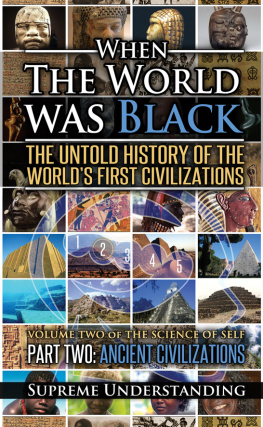
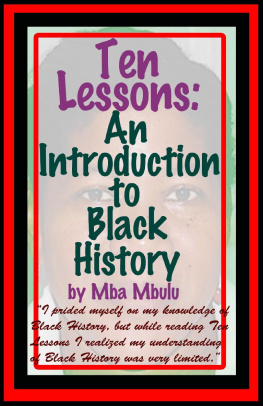
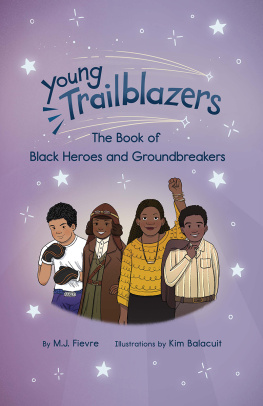
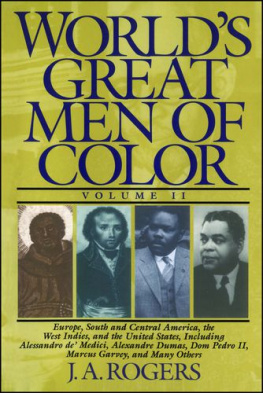
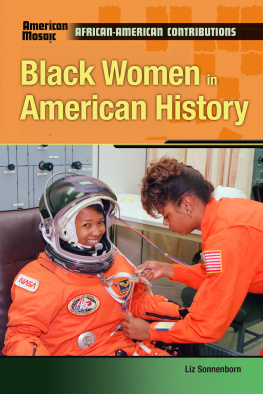
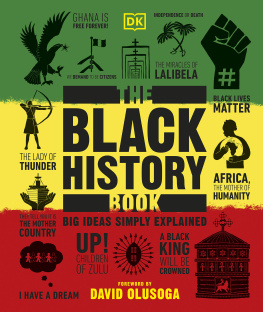
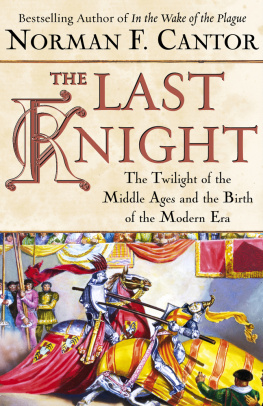




 When the World Was Black: The Untold History of the Worlds First Civilizations, Part Two: Ancient Civilizations. Copyright 2013 by Supreme Design, LLC. All rights reserved. No part of this book may be reproduced in any form or by any electronic or mechanical means including information storage and retrieval systems without permission in writing from the publisher, except by a reviewer, who may quote brief passages in a review.
When the World Was Black: The Untold History of the Worlds First Civilizations, Part Two: Ancient Civilizations. Copyright 2013 by Supreme Design, LLC. All rights reserved. No part of this book may be reproduced in any form or by any electronic or mechanical means including information storage and retrieval systems without permission in writing from the publisher, except by a reviewer, who may quote brief passages in a review. Supreme Design Publishing books are printed on long-lasting acid-free paper. When it is available, we choose paper that has been manufactured by environmentally responsible practices. These may include using trees grown in sustainable forests, incorporating recycled paper, minimizing chlorine in bleaching, or recycling the energy produced at the paper mill.
Supreme Design Publishing books are printed on long-lasting acid-free paper. When it is available, we choose paper that has been manufactured by environmentally responsible practices. These may include using trees grown in sustainable forests, incorporating recycled paper, minimizing chlorine in bleaching, or recycling the energy produced at the paper mill.